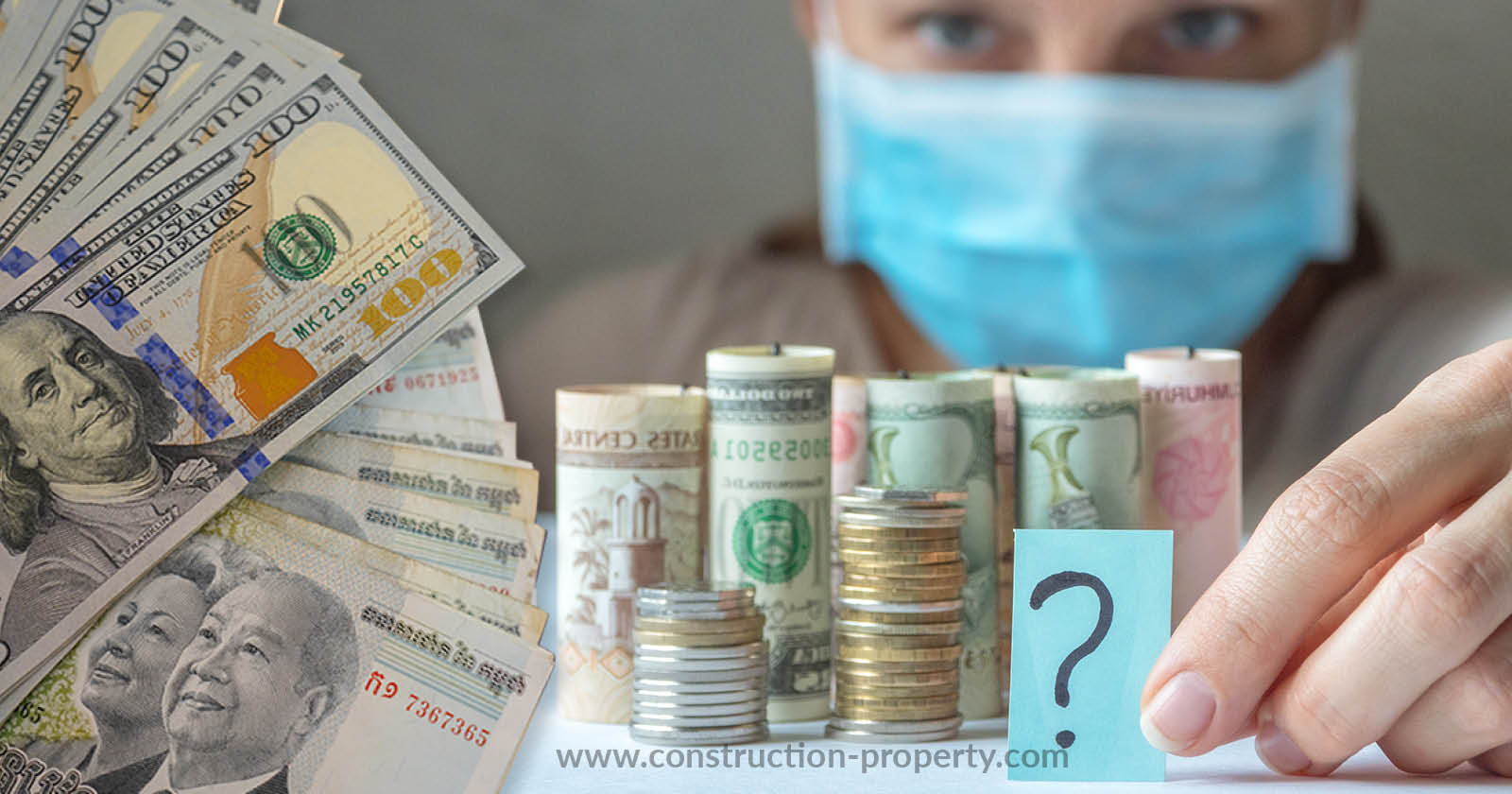រយៈពេល ៥ខែ ដើមឆ្នាំ២០២៥ ទេសចរអាមេរិកជាប់លេខ១ ក្នុងការទិញសំបុត្រចូលទស្សនាប្រាសាទអង្គរវត្ត
រយៈពេល ៥ខែ ដើមឆ្នាំ២០២៥ កម្ពុជាទទួលបានទេសចរអាមេរិកច្រើនជាងគេ គឺជាប់លេខ១ ក្នុងការទិញសំបុត្រចូលទស្សនារមណីយដ្ឋានអង្គរ។ នេះបើតាមរបាយការណ៍របស់គ្រឹះស្ថានអង្គរ កាលពីពេលថ្មីៗនេះ។ របាយការណ៍នេះ បានឱ្យដឹងថា រយៈពេល៥ខែនេះ មានភ្ញៀវទេសចរអន្តរជាតិចូលទស្សនាអង្គរចំនួន ៥២៧.៥៧៧នាក់ កើនឡើង ១១,៧១ភាគរយ ធៀបនឹងឆ្នាំ២០២៤ និងរកចំណូលបានចំនួន ២៤.៥៦៩.០២៤ដុល្លារ កើនឡើង ១០,៦៤ភាគរយ ធៀបនឹងរយៈពេលដូចគ្នា កាលពីឆ្នាំ២០២៤។ (អានបន្ថែម) ដោយឡែក បើក្រឡេកមើលតួលេខក្នុងខែឧសភាតែមួយ ឃើញថាភ្ញៀវទេសចរបរទេសដែលទិញសំបុត្រចូលទស្សនារមណីយដ្ឋានអង្គរ គឺភាគច្រើនជាភ្ញៀវទេសចរចិនទៅវិញ ដែលបានជាប់លំដាប់លេខ១, រីឯសហរដ្ឋអាមេរិកបានឈរនៅលំដាប់លេខ២, អង់គ្លេសលេខ៣, អូស្ត្រាលីលេខ៤, បារាំងលេខ៥ និងជប៉ុនលេខ៦។ អ្វីដែលជាការកត់សម្គាល់គឺ ក្នុងរយៈពេល ៥ខែ បើគិតចាប់ពីខែមករាដល់ខែឧសភាវិញ ភ្ញៀវទេសចរអន្តរជាតិដែលទិញសំបុត្រច្រើនជាងគេ គឺសហរដ្ឋអាមេរិកជាប់លេខ១, អង់គ្លេសលេខ២, ប្រទេសបារាំងលេខ៣, ចិនលេខ៤ និង ប្រទេសកូរ៉េខាងត្បូងលេខ៥។ យ៉ាងណាក៏ដោយ ក្រសួងទេសចរណ៍ បានព្យាករណ៍ថា ក្នុងឆ្នាំ២០២៥នេះ កម្ពុជានឹងទទួលបានភ្ញៀវទេសចរបរទេសប្រមាណ ៧,៥លាននាក់ ដែលនឹងនាំចំណូលចូលសេដ្ឋកិច្ចជាតិប្រមាណជាង ៥ ពាន់លានដុល្លារ។ - […]
រយៈពេលជិតកន្លះឆ្នាំនេះ កម្ពុជាលក់សំបុត្រទេសចរណ៍បានជាង ២៥លានដុល្លារ
ក្នុងរយៈពេល៥ខែ គិតចាប់ពីខែមករា ដល់ខែឧសភា ឆ្នាំ២០២៥នេះ កម្ពុជារកចំណូលបាន ២៥.៦១២.៧៩៧ដុល្លារ ពីការលក់សំបុត្រចូលទស្សនារមណីយដ្ឋានល្បីៗដូចជា ប្រាសាទអង្គរ, ប្រាសាទកោះកែរ, ប្រាសាទបេងមាលា, ភ្នំក្បាលស្ពាន និងការជិះទូកកម្សាន្ត។ នេះបើយោងតាមរបាយការណ៍ចេញផ្សាយដោយគ្រឹះស្ថានអង្គរនៅថ្ងៃទី០១ ខែមិថុនា ឆ្នាំ២០២៥។ របាយការណ៍ខាងលើបានឱ្យដឹងថា ក្នុងរយៈពេលជិតកន្លះឆ្នាំមកនេះ (៥ខែដើមឆ្នាំ២០២៥) កម្ពុជាទទួលបានភ្ញៀវទេសចរបរទេសចំនួន ៥២៧.៥៧៧នាក់ ដែលបានទិញបណ្ណចូលទស្សនារមណីយដ្ឋានអង្គរ បើគិតជាទឹកប្រាក់មានចំនួនសរុប ២៤.៥៦៩.០២៤ដុល្លារ កើន ១០,៦៤% ធៀបនឹងរយៈពេលដូចគ្នាកាលពីឆ្នាំ២០២៤។ ដោយឡែកការលក់សំបុត្រចូលទស្សនារមណីយដ្ឋានអង្គរក្នុងខែឧសភា តែឯង អាចរកចំណូលបានប្រមាណ ២.៣៦០.២១៤ដុល្លារ ពីភ្ញៀវទេសចរបរទេសចំនួន ៥២.៧៦៧នាក់ កើនឡើង ៣,១០% ធៀបនឹងរយៈពេលដូចគ្នាកាលពីឆ្នាំ២០២៤។ ក្រៅពីចំណូលបានពីការលក់សំបុត្រចូលទស្សនារមណីយដ្ឋានអង្គរ គ្រឹះស្ថានអង្គរបានរកចំណូលបន្ថែមពីការលក់សំបុត្រចូលទស្សនារមណីយដ្ឋានផ្សេងៗទៀត រួមមាន៖ ប្រាសាទកោះកែរ, ប្រាសាទបេងមាលា, ភ្នំក្បាលស្ពាន និងការជិះទូក បើគិតជាទឹកប្រាក់សរុបបានចំនួន ១.០៤៣.៧៧៣ដុល្លារ។ ដើម្បីបង្កើនបទពិសោធន៍ដល់ភ្ញៀវអន្តរជាតិ ទាំងរដ្ឋាភិបាលកម្ពុជា និងមូលនិធិអង្គរ បានអនុវត្តគំនិតផ្តួចផ្តើមជាយុទ្ធសាស្ត្រ សំដៅលើកកម្ពស់វិស័យទេសចរណ៍។ ផែនការទាំងនេះផ្តោតលើការទាក់ទាញអ្នកធ្វើដំណើរមកពីជុំវិញពិភពលោក ដោយសង្កត់ធ្ងន់លើបេតិកភណ្ឌវប្បធម៌ដ៏សម្បូរបែបរបស់ប្រទេសកម្ពុជា និងទេសភាពធម្មជាតិដ៏គួរឱ្យភ្ញាក់ផ្អើល។(អានបន្ថែម, បន្ថែម និងបន្ថែម) - Video Advertisement […]
ក្នុងឆ្នាំ២០២៤ កម្ពុជារកចំណូលបានជិត ១០០លានដុល្លារ ពីវិស័យរ៉ែ កើនជិត ៨០%
ក្នុងឆ្នាំ២០២៤ កន្លងទៅនេះ ក្រសួងរ៉ែ និងថាមពល បានប្រមូលចំណូលមិនមែនសារពើពន្ធពីវិស័យរ៉ែបានជិត១០០លានដុល្លារ កើនឡើង ៧៩ % ខណៈបច្ចប្បន្នកម្ពុជាមានការដ្ឋានរ៉ែជាច្រើន សម្រាប់ផលិតផលរ៉ែបំពេញតម្រូវការក្នុងស្រុក និងនាំចេញ។ នេះបើយោងតាមប្រសាសន៍ឯកឧត្តម កែវ រតនៈ រដ្ឋមន្រ្តីក្រសួងរ៉ែ និងថាមពល ក្នុងពិធីសម្ពោធបើកឱ្យដំណើរការជាផ្លូវការ រោងចក្រផលិតស៊ីម៉ងត៍ នៅស្រុកឱរ៉ាល់ ខេត្តកំពង់ស្ពឺ នៅថ្ងៃទី២០ ខែឧសភា ឆ្នាំ២០២៤។ នាឱកសនោះ ឯកឧត្តម បានឱ្យដឹងថា នៅក្នុងឆ្នាំ២០២៤ កន្លងទៅនេះ ក្រសួងរ៉ែ និងថាមពល បានប្រមូលចំណូលមិនមែនសារពើពន្ធពីវិស័យរ៉ែជូនរដ្ឋបានប្រមាណជិត ១០០លានដុល្លារ ការកើនឡើងប្រមាណ ៧៩% ធៀបនឹងឆ្នាំ២០២៣។ លើសពីនេះ ឯកឧត្តមបានកត់សម្គាល់ថា ខេត្តកំពង់ស្ពឺតែមួយបានចូលរួមចំណែកប្រមាណ ៥លានដុល្លារក្នុងចំណូលមិនមែនសារពើពន្ធក្នុងឆ្នាំ២០២៤ ខណៈក្នុងត្រីមាសទី១ ឆ្នាំ២០២៥នេះ ក៏បានរួមចំណែកប្រមាណ ១លានដុល្លារ និងបង្កើតការងារជូនបងប្អូនប្រជាពលរដ្ឋប្រមាណ ១៦០០នាក់ ពីការដ្ឋានចំនួន ៧៦កន្លែង ក្នុងខេត្តកំពង់ស្ពឺ ផងដែរ។ ឯកឧត្តមបន្ថែម បច្ចុប្បន្នក្រសួងរ៉ែ និងថាមពល កំពុងពិនិត្យ និងវាយតម្លៃការស្នើសុំប្រើប្រាស់មូលនិធិរ៉ែសម្រាប់អនុវត្តន៍គម្រោងថ្មីចំនួន ៩គម្រោងបន្ថែមទៀត […]
AMRO ព្យាករថា៖ សេដ្ឋកិច្ចកម្ពុជាក្នុងឆ្នាំ២០២៥ ធ្លាក់មកត្រឹម ៤,៩% ដោយសារតែការតំឡើងពន្ធគយរបស់អាមេរិក
ថ្មីៗនេះ អ្នកជំនាញរបស់ការិយាល័យស្រាវជ្រាវម៉ាក្រូសេដ្ឋកិច្ចអាស៊ាន+៣ (AMRO)បានផ្តល់ការព្យាករណ៍ថា កំណើនសេដ្ឋកិច្ចកម្ពុជានឹងធ្លាក់មកនៅត្រឹម ៤,៩% សម្រាប់ឆ្នាំ២០២៥ និង ៤,៧% សម្រាប់ឆ្នាំ២០២៦។ ទន្ទឹមនឹងការព្យាករណ៍នេះ AMRO ក៏បានលើកឡើងពីបញ្ហាប្រឈមនានា អមដោយអនុសាសន៍មួយចំនួនផងដែរ។ គួររំលឹកថា កាលពីឆ្នាំ២០២៤ កំណើនសេដ្ឋកិច្ចរបស់ប្រទេសកម្ពុជាបានបង្កើនល្បឿនរហូតដល់ ៦% ក្នុងឆ្នាំ ២០២៤ ខណៈឆ្នាំ២០២៣ មានត្រឹមតែ ៥% ប៉ុណ្ណោះ។ កំណើរនេះត្រូវបានរុញច្រានឡើងដោយការស្ទុះងើបឡើងវិញយ៉ាងខ្លាំងនៅក្នុងវិស័យកាត់ដេរ។ ទោះបីជាយ៉ាងណាក៏ដោយ ថ្មីៗនេះ ដោយសារពន្ធគយខ្ពស់ដែលមិននឹកស្មានដល់របស់សហរដ្ឋអាមេរិក កំណើននេះត្រូវបានគេទម្លាក់វាចុះមកនៅត្រឹមតែ ៤,៩%ប៉ុណ្ណោះ នៅឆ្នាំ២០២៥។ នេះក៏ដោយសារតែការពឹងផ្អែកយ៉ាងខ្លាំងលើការនាំចេញទៅកាន់សហរដ្ឋអាមេរិក។ គោលនយោបាយសម្របសម្រួល និងពហុភាគី រួមទាំងការគាំទ្រសារពើពន្ធដែលបានកំណត់គោលដៅ និងការធ្វើពិពិធកម្មទីផ្សារ និងឧស្សាហកម្ម គឺចាំបាច់បំផុតដើម្បីពង្រឹងភាពធន់ ចំពេលមានភាពតានតឹងពាណិជ្ជកម្មសកលដែលកំពុងកើនឡើង។ អ្នកជំនាញក៏បានក្រើនរំលឹកទៀតថា ប្រសិនបើហានិភ័យខាងក្រៅបានធូរស្រាល ការយកចិត្តទុកដាក់គួរតែងាកទៅរកការស្ដារឡើងវិញនូវទំហំសារពើពន្ធ កាត់បន្ថយហានិភ័យហិរញ្ញវត្ថុ និងជំរុញកំណែទម្រង់រចនាសម្ព័ន្ធដើម្បីធ្វើពិពិធកម្មសេដ្ឋកិច្ចបន្ថែមទៀត។ ការរកឃើញទាំងនេះគឺផ្អែកលើការវាយតម្លៃបឋមដោយការិយាល័យស្រាវជ្រាវម៉ាក្រូសេដ្ឋកិច្ចអាស៊ាន+៣ (AMRO) បន្ទាប់ពីដំណើរទស្សនកិច្ចពិគ្រោះយោបល់ប្រចាំឆ្នាំរបស់ខ្លួនមកកាន់ប្រទេសកម្ពុជាកាលពីថ្ងៃទី២១ ដល់ថ្ងៃទី៣០ ខែមេសា ឆ្នាំ២០២៥។ បេសកកម្មនេះត្រូវបានដឹកនាំដោយ AMRO Principal Economist Jinho Choi […]
ត្រឹម៣ខែដំបូង នៃឆ្នាំ២០២៥ កម្ពុជាស្រូបភ្ញៀវទេសចរអន្តរជាតិជិត ២លាននាក់ កើនឡើង១៦%
ក្នុងការចាប់ផ្តើមដ៏គួរឲ្យកត់សម្គាល់ក្នុងឆ្នាំនេះ កម្ពុជាបានស្វាគមន៍ភ្ញៀវទេសចរអន្តរជាតិជិត ២លាននាក់ក្នុងត្រីមាសទី១ នៃឆ្នាំ២០២៥ ពោលគឺមានការកើនឡើង ១៦% បើធៀបនឹងរយៈពេលដូចគ្នាកាលពីឆ្នាំ២០២៤។ ការកើនឡើងនេះត្រូវបានលើកឡើងដោយ ឯកឧត្តមរដ្ឋមន្ត្រី ហួត ហាក់ រដ្ឋមន្ត្រីក្រសួងទេសចរណ៍ ក្នុងកិច្ចប្រជុំនាពេលថ្មីៗនេះ ក្នុងគោលបំណងជំរុញយុទ្ធនាការទេសចរណ៍សម្រាប់រដូវបៃតង ដែលធ្វើឡើងនៅថ្ងៃទី៧ ខែឧសភា ឆ្នាំ២០២៥។ ភ្ញៀវទេសចរដែលសម្រុកមកកម្ពុជាទាំងនេះបានរួមចំណែកជាង ២៣លានដុល្លារ ដល់សេដ្ឋកិច្ចក្នុងស្រុក តាមរយៈការទៅទស្សនាតំបន់វប្បធម៌សំខាន់ៗមួយចំនួនដូចជា ប្រាសាទអង្គរវត្ត, ប្រាសាទកោះកែរ,ប្រាសាទបេងមាលា, ភ្នំក្បាលស្ពាន, និងការជិះទូកកម្សាន្តដ៏គួរឱ្យទាក់ទាញ ដែលនេះជាការបង្កើននូវបទពិសោធន៍ដល់អ្នកទស្សនាបន្ថែមទៀត។ ទាំងអស់នេះបានបង្ហាញថាប្រទេសកម្ពុជាមិនត្រឹមតែជាគោលដៅទេសចរណ៍វប្បធម៌ប៉ុណ្ណោះទេ តែវាជាបទពិសោធន៍ផ្សងព្រេងដែលអ្នកទេសចរជាច្រើនកំពុងស្វែងរក។(អានបន្ថែម) ជាមួយគ្នានេះដែរ តាមរយៈរបាយការណ៍របស់រដ្ឋលេខាធិការដ្ឋានអាកាសចរណ៍ស៊ីវិល (SSCA) បានបង្ហាញពីនិន្នាការវិជ្ជមានបន្ថែមទៀតថា៖ ក្នុងរយៈពេល ៤ខែ ចុងក្រោយនេះ ក៏មានការកើនឡើងនូវជើងហោះហើរចេញ-ចូល(ទ្វេទិស)ឆ្លងកាត់ប្រទេសកម្ពុជាតាមរយៈ(អាកាសយានដ្ឋានអន្តរជាតិភ្នំពេញ សៀមរាប និងខេត្តព្រះសីហនុ) មានជាង ២.២ ម៉ឺនជើង ពោលគឺកើនឡើង ១៧% បើធៀបនឹងរយៈពេលដូចគ្នាក្នុងឆ្នាំ ២០២៤។ ក្នុងនោះដែរ ឃើញថា ចំនួនអ្នកដំណើរចេញ-ចូល(ទ្វេទិស) មានរហូតដល់ ២.៥២៥.២០៨នាក់ កើនឡើង ១៨% និងទំនិញដឹកជញ្ជូនតាមផ្លូវអាកាសចេញ-ចូល(ទ្វេទិស) មានសរុប ២២.៣៥០តោន […]
កម្ពុជា-ឡាវ ឯកភាពគ្នាជំរុញការនាំចេញកសិផលរបស់កម្ពុជាទៅប្រទេសទី៣ តាមរយៈរថភ្លើងល្បឿនលឿននៅឡាវ
កម្ពុជា និងឡាវ បានឯកភាពគ្នាជំរុញកសិពាណិជ្ជកម្មរវាងប្រទេសទាំងពីរ ដោយផ្តោតលើការនាំចេញផលិតផលស្វាយទៅប្រទេសទី៣ ដោយប្រើប្រាស់ប្រព័ន្ធផ្លូវដែកនិងរថភ្លើងល្បឿនលឿន ដើម្បីជំរុញកសិពាណិជ្ជកម្មទ្វេភាគី។ ការឯកភាពនេះ ត្រូវបានធ្វើឡើងរវាងឯកឧត្តម ឌិត ទីណា រដ្ឋមន្ត្រីក្រសួងកសិកម្មកម្ពុជា និងក្រសួងកសិកម្មឡាវ ក្នុងឱកាសបំពេញទស្សនកិច្ចផ្លូវការនៅប្រទេសឡាវ ចាប់ថ្ងៃទី៣០ ខែមេសា ដល់ថ្ងៃទី៣ ខែឧសភា ឆ្នាំ២០២៥ ។ នៅក្នុងដំណើរទស្សនកិច្ចនេះ ភាគីទាំងពីរបានឯកភាពគ្នាជំរុញកសិពាណិជ្ជកម្មរវាងប្រទេសទាំងពីរ ដោយផ្តោតលើការនាំចេញផលិតផលស្វាយទៅប្រទេសចិន ឬប្រទេសទី៣ តាមរយៈការប្រើប្រាស់ប្រព័ន្ធផ្លូវដែកនិងរថភ្លើងល្បឿនលឿនឆ្លងកាត់ប្រទេសឡាវ ដើម្បីបើកទីផ្សារថ្មីសម្រាប់ផលិតផលកសិកម្មរបស់កម្ពុជា។ លើសពីនេះ ភាគីទាំងពីរ ក៏បានឯកភាពបន្តពង្រឹងកិច្ចសហប្រតិបត្តិការផ្សេងៗទៀតលើឆាកអន្តរជាតិក្នុងវិស័យកសិកម្ម ដើម្បីផលប្រយោជន៍រួមនៃប្រទេសទាំងពីរផងដែរ។ គួរបញ្ជាក់ថា ដំណើរទស្សនកិច្ចរបស់ក្រសួងកសិកម្មទៅកាន់ប្រទេសឡាវ ក៏មានគោលដៅស្វែងយល់ពីដំណើរការទាញយករ៉ែ Potash មកប្រើប្រាស់ជាសារធាតុផ្សំមួយក្នុងការផលិតជីកសិកម្ម និងភ្ជាប់ទំនាក់ទំនងឱ្យអ្នកវិនិយោគកម្ពុជាអាចនាំយកផលិតផលសម្រេចជីប៉ូតាស (potash-based fertilizer) មកប្រើប្រាស់ក្នុងការផលិតជីនៅកម្ពុជាថែមទៀត។ ភាពជាដៃគូនេះគឺជាជំហានដ៏ជោគជ័យមួយឆ្ពោះទៅរកការលើកកម្ពស់សន្តិសុខស្បៀង និងកំណើនសេដ្ឋកិច្ចទាំងនៅក្នុងប្រទេសកម្ពុជា និងឡាវ ដោយសង្កត់ធ្ងន់លើការប្តេជ្ញាចិត្តរបស់ពួកគេក្នុងការអភិវឌ្ឍផ្លូវពាណិជ្ជកម្មកសិកម្មប្រកបដោយនិរន្តរភាព៕ - Video Advertisement -



 English
English







